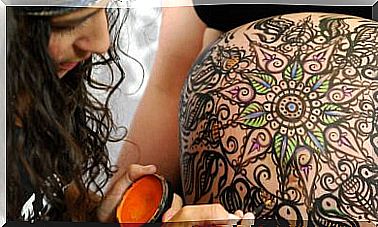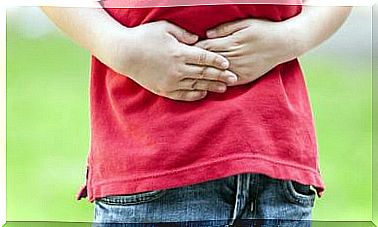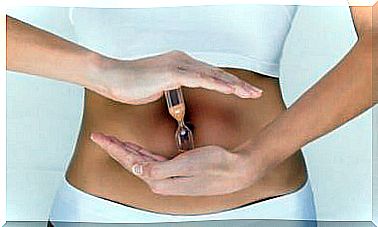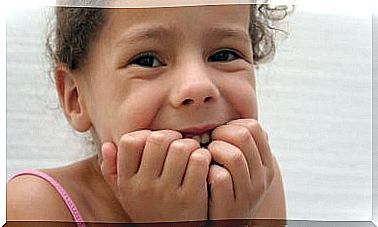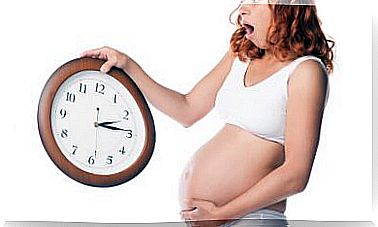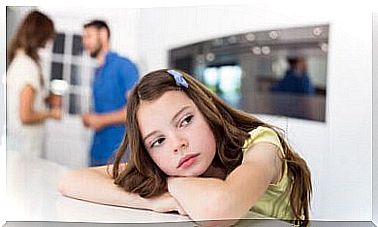How To Act In Cases Of Hiccups, Fever Or Vomiting
Among the most common scares that parents usually receive in the first months of their child’s life and last for several years, are, without a doubt, hiccups, fever or vomiting; but these conditions are also among the most normal, because they are a reaction of the body against some foreign agent.
Although they are not related to each other, these conditions are treated together because they are the main cause of alarm in healthy children. Although hiccups cannot be compared to fever, because one is more severe than the other, both must be adequately controlled so that they do not harm the child later on.
One of the characteristics that these conditions have in common is that they cannot be prevented, as a child develops a fever after being affected by a virus or bacteria that, in general, we do not know how it got into his body.
Vomiting, in turn, is also a response to some agent that is already present in the body, and hiccup is an involuntary movement that puts pressure on the diaphragm and starts for no apparent reason.
In this article, we will talk more about how to act in cases of hiccups, fever and vomiting. Check out.
A dangerous enemy: a child’s fever
While not a disease in itself, fever is a dangerous indication that something more serious is happening in the body. It usually presents in young children when some pathogen enters their body.
Fever is always worth worrying about, but it’s only when it’s persistent and the temperature is above 37 degrees that we’re talking about something more serious.
Viral infections that are very common in most cases are those that give rise to fever; but they are not cause for alarm and generally do not require treatment.
What to do in case of fever?
Depending on the type of fever, the child may be more or less decayed; so it is necessary to observe what other signs of malaise she presents. A fever that exceeds 38º, but is of the viral type, it is normal that it disappears in no more than 32 hours. If it persists for more than two days, a specialist should be consulted.
While the child has a fever, it is recommended:
- Decrease body temperature through home remedies, in addition to shaking, undressing and moistening.
- Control the temperature constantly.
- Administer minimum doses of acetaminophen, as indicated by the doctor.
- Some mothers bathe their children to reduce the temperature, this action is recommended only if you use water at room temperature or warm, never cold.
- Give plenty of fluids to drink.
vomiting in children
It is a sign that there is some pathogen in the body, although it may be related to some element that affects the stomach, in reality it is an alarm of a virus, the presence of some bacteria or infection in general.
Vomiting in very young children is a cause for concern for parents because as we know it is a symptom of something larger and they cannot express how they feel. Furthermore, vomiting can cause the child to become exhausted.
Although not all causes of vomiting are serious, it is necessary to distinguish that the intervention of an adult or a specialist must be immediate, because the child must be assisted while expelling the contents of his stomach.
It is likely that the child will improve considerably after vomiting, the problem is when this is repeated for a long period of time. For example, if the child has vomited for more than two days, specialist intervention is required.
How to handle a case of vomiting?
- Regulate meal times.
- Try to ensure that the child does not eat more than their size.
- Take care of hand hygiene.
- Be restricted with the sterilization of objects that come into contact with the baby.
- Comply with food cleaning.
- Keep your child hydrated.
- Never leave her alone while vomiting.
- Watch for any other signs of malaise, fever, loss of appetite, pain or diarrhea.
Why do we care about the hiccup?
Hiccup is usually transient and is almost never caused by a serious condition, some kind of worrisome health problem or care; but when it is prolonged, it can be an alarm for neurological, gastric or metabolic diseases.
A baby has hiccups for the same reasons adults do, but parents tend to worry more because the contractions of his little body don’t feel normal and this seems excessively uncomfortable for him.
How to act when faced with a case of hiccups?
Just as the hiccup appears strangely, so is the method of stopping it; that is, it is not known precisely which option may work best in each case.
To help you resolve this concern with the baby, we recommend that you act as follows:
- Prevent the baby from eating or drinking too quickly.
- Do not lay it down immediately after eating.
- Make it a habit to burp it during and after eating.
- Facilitate proper breathing.
- Keep him hydrated.
